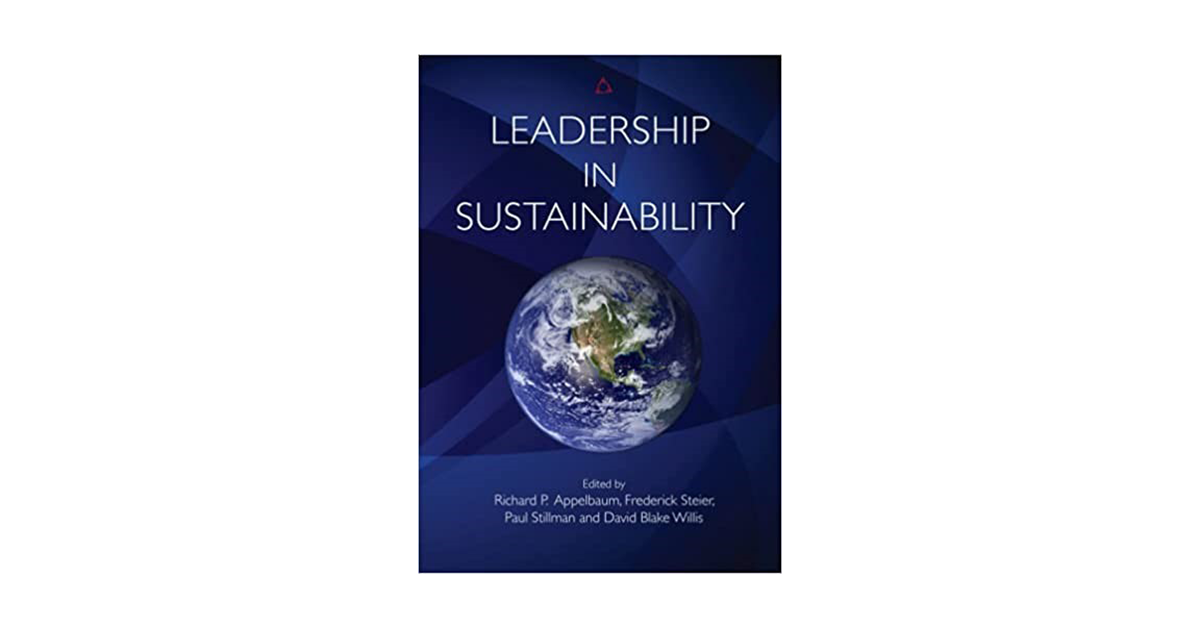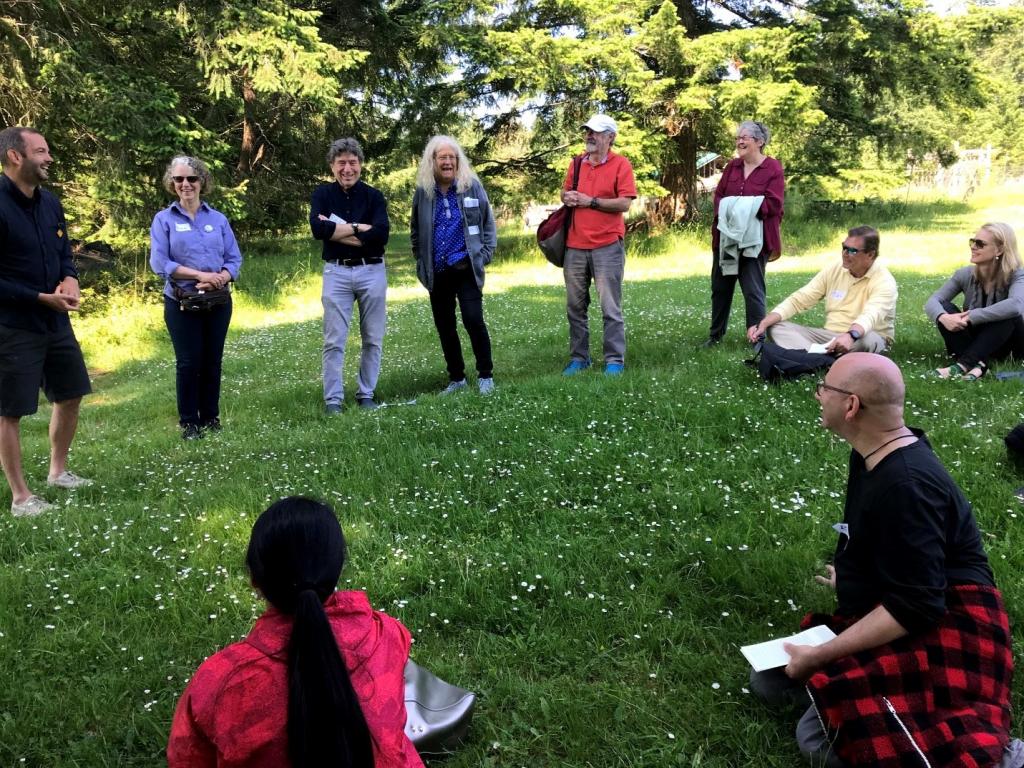Leadership in Sustainability

In this blog post, Associate Faculty member, Dr. Alice MacGillivray shares lessons from a new book on Leadership in Sustainability. Contributing authors all have a relationship with Fielding Graduate University, with which we in the School of Leadership Studies share values and a pedagogical style. As part of a transfer agreement, graduates of the MA in Leadership program receive advanced standing in Fielding’s Doctoral programs in Human and Organizational Development. To learn more about the transfer credit agreement, you may contact Dr. Dorothy Agger-Gupta.
This blog post features key takeaways from Alice’s contribution to this timely new book.
Sustainability Leadership
- Other than rising temperatures and sea levels, what indirect effects can climate change have on our planet?
- Can you recall any news items or personal experiences where something went wrong because a junior person was afraid to speak up to someone more senior? When might that happen in an environmental protection field?
- What further support and guidance would you like to have as an emerging sustainability leader?
What do these questions have in common? Among other things, they are all questions at the ends of chapters in a new, boundary-spanning book published by Fielding University Press.

A group listens to elected official Scott Colbourne (left). Second from left is chapter author Alice MacGillivray; third from left is editor and author Rich Appelbaum; fifth from left is editor and author Fred Steier. Photo by David Blake Willis.
Alice’s Chapter
My own contribution to this book draws on research thorough which I explored how select leaders understood and worked with boundaries. I found participants through a nomination process; people in my networks filled out a nomination form describing why they respected the potential participant in relation to several criteria. Leadership scholar Joe Raelin contacted me and recommended I spend time with a police department in Oklahoma. Police Chief Wuestewald welcomed the opportunity and I spent several days interviewing and observing interactions.
I admit I knew very little about the policing sector, and my assumptions were initially reinforced by the large, fit, armed officer who met me at the airport, and the poster in the department board room.
In general, policing culture is extremely hierarchical. My chapter points out that the natural world operates very differently than most organizations: especially hierarchical organizations. I believe that we have a lot to learn about leadership from natural systems, especially when the leadership relates to sustainability. But are approaches coherent with natural systems relevant to as unlikely a sector as policing? The chapter outlines how this department went through drastic changes under the Chief’s leadership. Here are a few takeaways:
- If you are working in a complex environment; don’t pretend it is simple.
- When change is needed, pay attention to initial starting conditions, which are key in complex systems. In this case, the previous chief had been autocratic and people were afraid to speak up or be creative.
- Hierarchies can make organizations brittle.
- Systems changes involve identity shifts.
- Deep trust is critical. A key point in this story is when a diverse leadership team came to consensus on a difficult policy issue and knew the chief disagreed. When he told them it was their decision, a new culture was launched.
- Diverse perspectives, ideas, and roles can come together to enable amazing successes. Create spaces for diversity to thrive. At the police department, diversity included gender, several unions and excluded personnel, sworn and civilian members, and many ranks.
- Letting go of power and making space for shared power can enhance leadership.
- Strong hierarchies develop for reasons. Examine those reasons: are they still valid? Are they only of value in specific situations?
- Sceptics can become your strongest allies.
About Alice
Alice MacGillivray first connected with Royal Roads as a student in 1998 when working in environment-related public sector leadership. Since 2000, she has held a variety of roles at RRU, including program development and leadership, program evaluations, thesis and project supervision, committee work, and course development and delivery in 10 programs across campus.